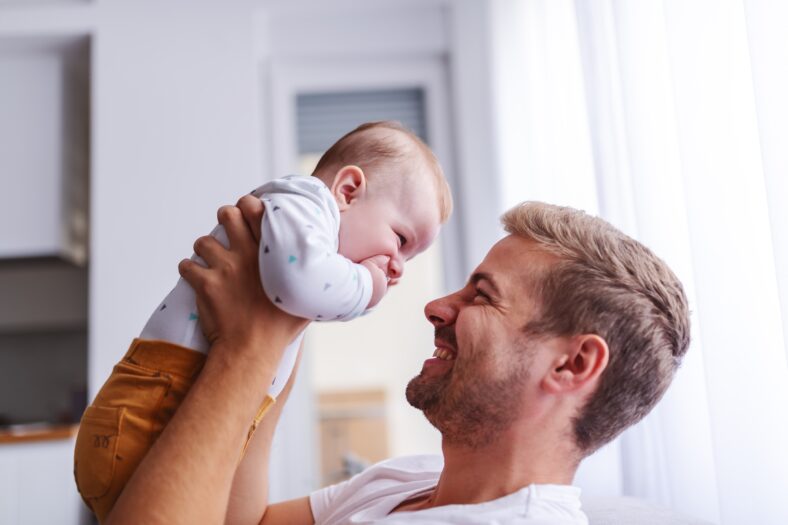Some New Dads Feel Overwhelmingly Unprepared For Parenthood And Guilty In Their New Roles

The journey to parenthood is not all about moments of love, wonder, and joy. There are also times of uncertainty, exhaustion, and even guilt.
Clearly, the adjustment period of becoming a new parent and a supportive partner comes with a complex range of emotions.
New research has found that the transition to parenthood was a challenge for new fathers as they struggled to balance changes in their home and work life, as well as mental health.
In a recent study, men across Australia with children aged from newborn to eight years old were interviewed. They described feeling guilty, “ridiculously unprepared,” and mindful of a shrinking social circle.
At the same time, they also felt more satisfaction with being new dads than they expected. The study provided another perspective on the transition of parenthood, particularly among fathers.
“Previous studies on dads have mainly focused on the first year of fatherhood when they have no insight into how things will play out for them in the longer term,” said Norma Barrett, the lead researcher from Deakin University’s School of Health and Social Development.
“This research brings in a broader, more reflective perspective from fathers and adds to the increasing understanding we have of the challenges faced by all new parents, both moms and dads, as they adjust to life with a newborn.”
The most common responses from new fathers include how parenthood causes guilt, affects financial decisions and careers, and leads to the feeling of a lack of agency due to relationship stress.
They also revealed how unprepared they felt for parenthood and that there was only one chance at the beginning of parenthood for them to establish their role in the family unit.

Sign up for Chip Chick’s newsletter and get stories like this delivered to your inbox.
“Many fathers were ‘default breadwinners’ for the family, though some did not want to be. Most of the fathers we spoke to wanted to spend more time with their children than they originally imagined, but they also felt like the ‘passenger parent,’ adapting to the needs of others and not voicing their own preferences or needs for fear of burdening others,” said Barrett.
“This often had a significant impact on their relationship with their partners, and in some cases, led to a complete breakdown of the relationship.”
The findings are useful to health service providers, employers, and parents so moms and dads can better prepare for parenthood and the decisions that come along with it.
If parents were given the tools and knowledge to protect their mental health and manage their relationships, they would be able to focus more on the positive parts of parenting, ensuring a happier environment for their child to grow up in.
The details of the full study were published in the Journal of Family Studies.
More About:News